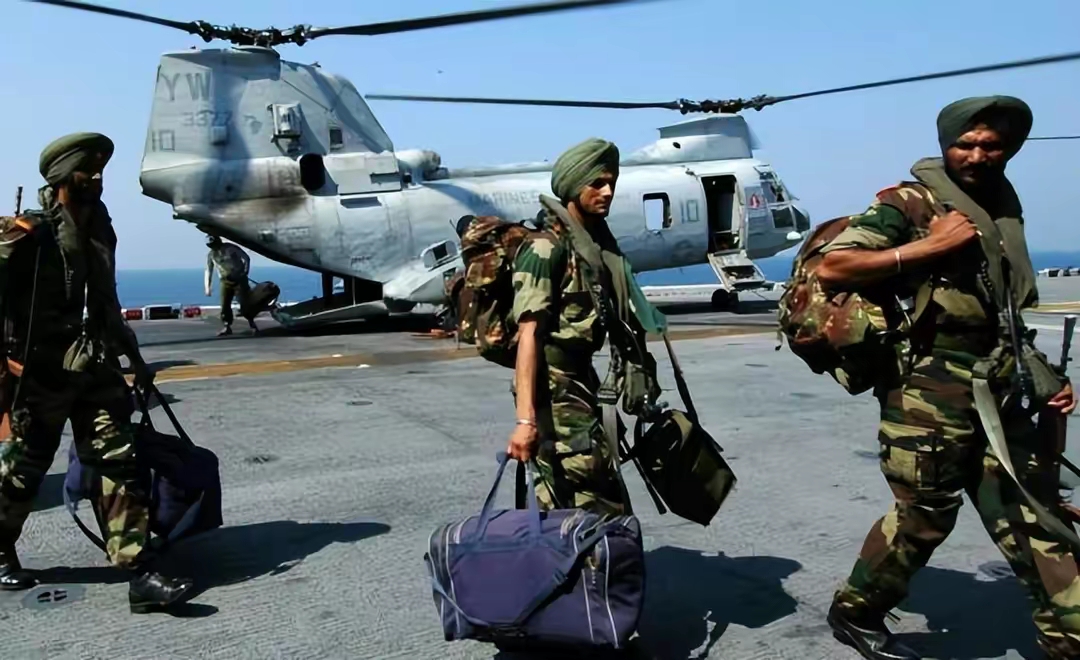
On February 2nd local time, the Ministry of Foreign Affairs of Maldives announced that it had held high-level talks with India in New Delhi and reached a consensus on India's withdrawal of its deployed troops. The Indian government agreed to initiate a withdrawal before March 10th and complete a comprehensive withdrawal within the following two months, withdrawing all 89 military personnel.
Maldives stated that these Indian soldiers are mainly responsible for operating three sea reconnaissance aircraft, two helicopters, and one fixed wing aircraft donated by India. This withdrawal decision not only involves changes in military cooperation, but may also have far-reaching impacts on regional stability and the relationship between the two countries.
At the same time, the Ministry of Foreign Affairs of Maldives emphasized in the statement that both sides have reconsidered their cooperation and look forward to establishing a stronger partnership in defense, security, and other areas.
However, it is intriguing that the Indian government did not specifically mention the withdrawal of troops in its statement, which has raised some doubts about India's attitude from the outside world.
Looking back at history, after India's independence, British colonial rule in the Maldives came to an end. However, India did not immediately withdraw its troops from the Maldives. On the contrary, the Indian government has reached a military agreement with the Maldives government, allowing India to deploy troops in the Maldives. This decision is mainly based on two reasons: first, to prevent neighboring countries from invading Maldives, and second, to maintain India's own national security.
From a geographical perspective, the Maldives is located at the center of the Indian Ocean and has significant strategic importance for India's national security. By deploying troops in the Maldives, India can effectively monitor the military movements of neighboring countries and also prevent hostile countries from invading the Maldives. In addition, India's military presence in the Maldives can also provide guarantees for maritime transportation in the Indian Ocean region, ensuring the safety of India and its allies' maritime trade and energy channels.
However, after President Mohammad Muiz was elected as the President of Maldives in September last year, adjustments were made to relevant foreign policies. Muiz stated at his inauguration ceremony that he will uphold the independence and sovereignty of the country and will no longer tolerate the military presence of other countries. The change in this position is believed to be one of the reasons driving Maldives to demand the withdrawal of Indian troops.
According to incomplete statistics, India has troops stationed in the following countries and regions:
Bhutan: India has a certain number of military personnel stationed in Bhutan. According to the India Bhutan Friendship Treaty, India provides military assistance and protection to help Bhutan maintain its security and sovereignty.
Djibouti: India has a military base in Djibouti to maintain security and stability in the region, as well as to support India's maritime operations in Africa.
Kashmir region: Kashmir is a territory of Pakistan, and India claims sovereignty over the region. India has a certain number of troops stationed in the Kashmir region to threaten the security of Central and South Asia.
South Tibet: South Tibet belongs to the Xizang Autonomous Region of China. India believes that there is a dispute over sovereignty, and has stationed troops in the region to conduct military confrontation with China.
Aksaiqin: Aksaiqin is a territory of China, and China implements effective control in the region. India has troops stationed at the border of this region, and its military presence has sparked long-term border disputes and tensions.
It can be said that since independence, in order to enhance its geopolitical discourse power, India has attempted to exert deeper control over the aforementioned countries and regions, especially the Maldives, beyond culture and economy, and has therefore stationed troops in these countries and regions. Now, Maldives has announced that India will withdraw its troops from its country, and the entire incident involves multiple aspects such as regional security, military cooperation, and international relations, attracting close attention from global media and experts.
For a long time, India has regarded the Maldives as its sphere of influence, but the newly elected President of Maldives has changed the norm and made unexpected actions, calling the Maldives an independent sovereign country and not anyone's backyard. However, it is also unknown whether there will be any variables on the Indian side within the two months of completing the withdrawal. It can be said that the deep-seated game behind this has just begun. However, the weakening of India's control is an undeniable fact.

Since 2025, the conflict between the United States and Europe over the governance of the digital economy has continued to escalate.
Since 2025, the conflict between the United States and Euro…
When German Chancellor Mertz officially announced that he w…
On December 3rd local time, the copper price on the London …
The European Commission announced a new economic security s…
The European Commission announced a new economic security s…
For nearly a year, US President Donald Trump has launched a…